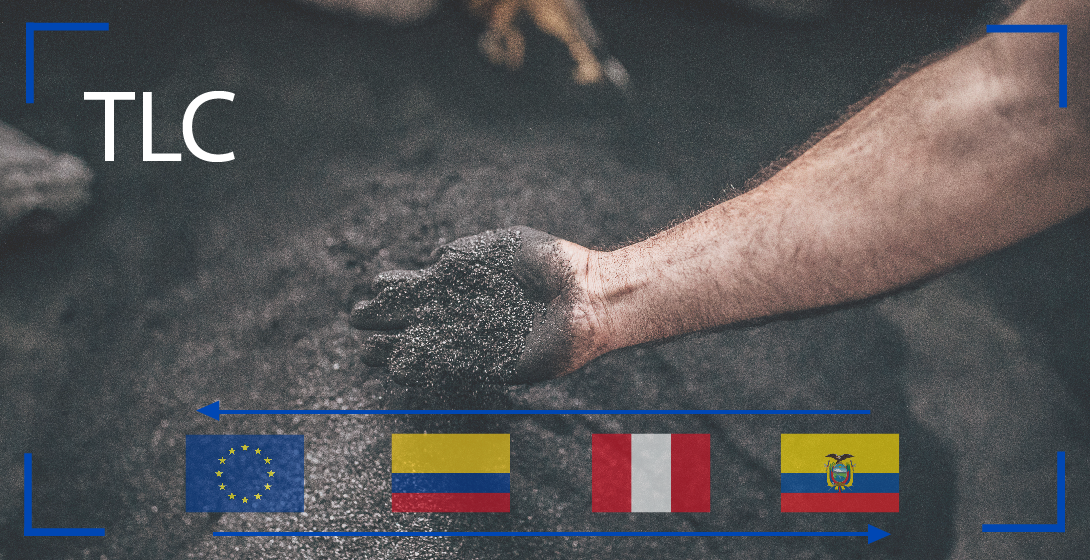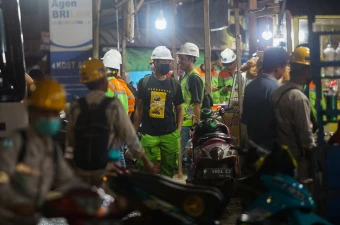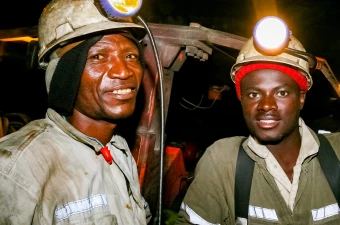Civil society organisations overseeing the implementation of the Free Trade Agreement between the European Union, on the one hand, and Colombia, Peru and Ecuador, on the other, have denounced the lack of governmental guarantees to properly fulfil their follow-up activities.
In the last meeting of the Parties, civil society delegates warned about serious violations of human and labour rights in mining sectors of Colombia and Peru, and on an escalation of threats and attacks against union leaders in Colombia.
Domestic Consultative Groups (DCG’s) oversee the implementation of the Agreement’s Title IX on Trade and Sustainable Development. They are made up of civil society and business organisations. CNV Internationaal and its partners in Peru and Colombia actively participate in the DCG’s.
Most notably, the free trade agreement has offered Latin American businessmen an access to a rich market of 500 million consumers with high purchasing power, while lifting barriers and allowing European companies to enter a region with huge amounts of natural resources.

According to official documents of the EU itself, ‘the trade agreement belongs to a ‘new generation’ of the EU’s trade agreements that, besides trade and investment, also focusses on, inter alia, the partners’ sustainable development.’
And this is why DCG’s were created: ‘to ensure free trade agreements have no negative impacts on the environment or on labour rights’, says Maurice van Beers, CNV Internationaal programme coordinator for Latin America, then adding that ‘in the last meeting, it was clear that the consultative groups have not yet received all the necessary support from governments in order to fulfil their tasks properly.’
In a joint communiqué, not supported by business representatives from Colombia, Peru and Ecuador—, civil society delegates exhort the European Union to ‘demand Andean governments to take their responsibilities for an actual dialogue with their domestic consultative groups.’ Indeed, after dragging their feet in setting up and mandating such groups, ‘they have yet to provide the members with resources for them to travel to the meetings venues. Most notably the Peruvian government has not facilitated the working of an independent DCG.’
Impacts of the pandemic
During sessions held last November 9 and 10, participants insisted on the deep impact that the COVID-19 outbreak will cause on health care systems, the informal economy, among others, but more generally on the Sustainable Development Agenda. ‘It is an utmost necessity to fight the crisis with strengthened, comprehensive universal social protection systems, and to include civil society in its diverse representations, in the debate on social protection measures.’ The Consultative Groups of this multi-party trade agreement request to be informed and consulted on any measures that, in its response to such challenges, the Sub-Committee on Trade and Sustainable Development would adopt or set in motion.
Alert in mining sectors of Peru and Colombia
DCG’s representatives have warned of impact of the COVID-19 outbreak on the labour rights of Peruvian and Colombian mineworkers. In the last few months, workers of multinational mining companies, especially outsourced workers, and in both countries, have suffered violations of their labour rights as economic consequences of the outbreak on mining activities, namely: lay-offs, suspension without pay, anti-union practices, and extension of atypical working days, thus jeopardising their health and security in the workplaces.’
and, in the long term, could lead to job losses’
The latter point has led Colombian representatives to vigorously denounce coalmining companies in their country, for imposing changes in working shifts. The ‘death shift’ (so-called by coalminers) ‘puts the health and security of the workers at risk and, in the long term, could lead to job losses’, says Ana Catalina Herrera, CNV Internationaal national coordinator in Colombia.
Another point of deep concern is the persistent insecurity that union leaders are suffering in Colombia, to the point that some have had to flee the country in the last few weeks.
The joint statement also draws the attention on the unfulfillment, by Peru’s mining industry, of Article 269, Title IX on Trade and Sustainable Development, for it has allowed mining activities to carry on during the COVID-19 pandemic, thus jeopardising workers’ health. The worse is that such activities have carried on without the effective and full supervision and protection by SUNAFIL, the governmental agency for labour inspection.
Considering the current health and economic crisis, and in the light of the serious facts denounced in the communiqué, the subscribing delegates deem essential for the States ‘to guarantee a transparent, reasoned, opportune, and inclusive public debate on the issues raised herein with regard to the due fulfilment of Title IX on Trade and Sustainable Development of the Free Trade Agreement with the EU, so as to fairly assess the outcomes achieved so far on economic and social levels, as well as with regard to the environment and human rights.’
Publication date 19 11 2020


